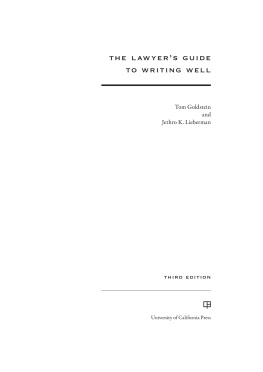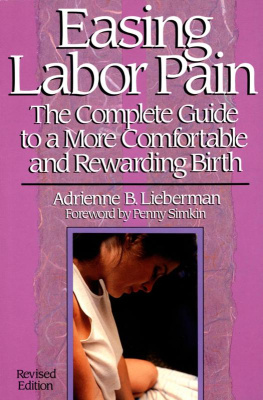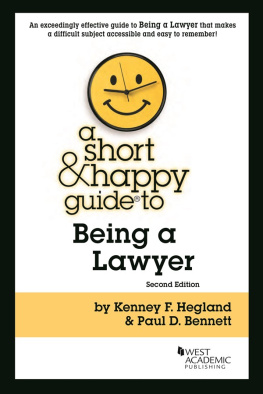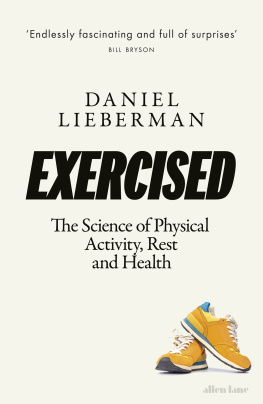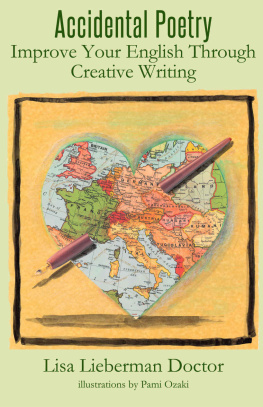PREFACE

For more than thirty years, we have been studying, writing about, and talking to people about the problems lawyers have with writing. Our concern led us to write the first edition of this book more than a quarter-century ago. Between October 1987 and June 1988, we asked 650 people familiar with legal writingpracticing lawyers, judges, professors, writing instructors, and journalists who report on legal topicswhat bothered them most about the way lawyers write. The answers from three hundred of those respondents inform a portion of this book.
Fifteen years later, we updated the book, and now, after another dozen years, we have revised it again, reflecting on the revolutionary changes in the practice of law. When we first began writing about writing, desktop computers were just beginning to find their way into lawyers offices, but probably few lawyers used them regularly or proficiently. (Indeed, lawyers at some firms told us then that they were forbidden to touch a computer; managing partners in those days viewed the word processor as a tool for secretaries and typists, not professionals.)
For all of the rapid improvement in communications technology since 1988, legal writing has improved little, if at all, since the first edition. Law offices around the country have largely defaulted in training their newcomers. During the 1990s, law firms hired so many new associates that they could no longer provide their customary one-on-one training. Currently, in the more uncertain economic climate for lawyers, training has become a costly extravagance. A natural solution, many supposed, was to look to the law schools to provide more thorough training. For a time, that seemed to be happening. During the 1990s, most American law schools established (or beefed up) their legal writing programs, usually a yearlong course in writing and research. These programs and courses were spurred by the MacCrate Report of the American Bar Association Chaired by New York lawyer Robert MacCrate, for whom the report was nicknamed, the Task Force on Law Schools and the Profession called on law schools to add communication skills to their educational objectives. The cry for greater clarity in communication, however, has not led to serious curricular reform. Most law school classroom instruction remains oral, and full-time professors devote almost no time to critiquing their students written work. The custom that law school professors grade their own exams, while salutary, also has unintended deleterious effects. Professors typically evaluate students on whether they have spotted the issues, not whether their exams are well written. Thus students can sail through three years of law school with very little critique of their writing. Even in legal writing courses, writing often takes a back seat to legal analysis, research, and the formats for motions, briefs, and other legal documents. For all the talk about legal literacy, writing instructors have the lowest prestige in the law schools in which they work, and the smallest claim on their resources. The consequence is that law schools remain unequipped to deal with increasingly ill-prepared college graduates who clamor for admission.
The increased attention to legal writing, even in more sophisticated courses, was short-lived. It was never clear whether the added writing instruction succeeded in improving students writing proficiency. And by the early part of the twenty-first century, many of these programs were being folded into broader lawyering courses that diluted the writing instruction in favor of other clinical skills. Most lawyers now practicing began their professional lives after the first edition of this book was published, roughly in the period during which law schools presumably beefed up their teaching of writing skills. Despite this increased attention, the quality of legal documents has not demonstrably improved.
But learning does not end in law school. We think lawyers in practice can improve, and we ask those who aim to write more clearly and efficientlyour readersto heed the lessons, techniques, and tips in the pages that follow. Work at it, and in six months time compare your old writing with the new. We think you will persuade yourself that the results will have amply repaid the effort.
PART I
WHY LAWYERS WRITE POORLY

1
DOES BAD WRITING REALLY MATTER?

Most lawyers write poorly.
Thats not just our lament. Leading lawyers across the country agree. They think modern legal writing is flabby, prolix, obscure, opaque, ungrammatical, dull, boring, redundant, disorganized, gray, dense, unimaginative, impersonal, foggy, infirm, indistinct, stilted, arcane, confused, heavy-handed, jargon- and clich-ridden, ponderous, weaseling, overblown, pseudointellectual, hyperbolic, misleading, incivil, labored, bloodless, vacuous, evasive, pretentious, convoluted, rambling, incoherent, choked, archaic, orotund, and fuzzy.

